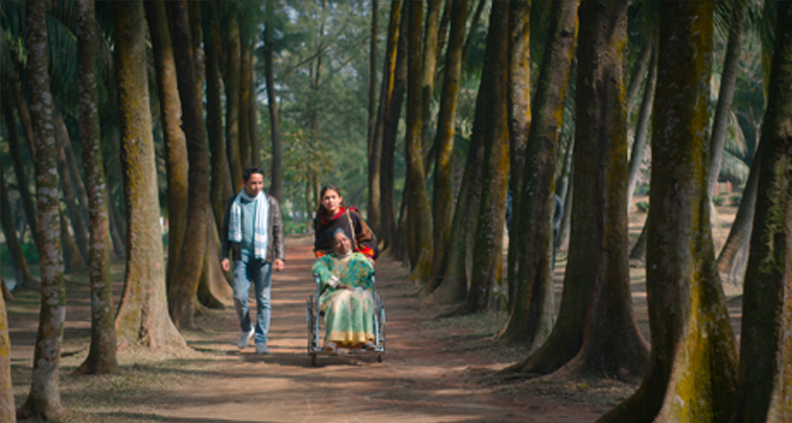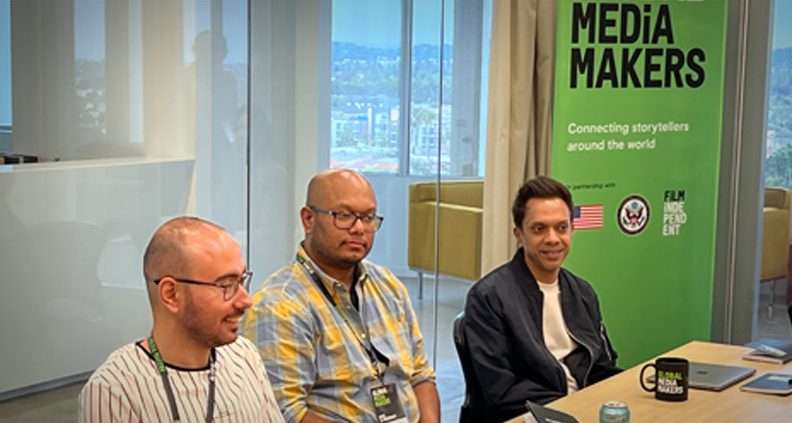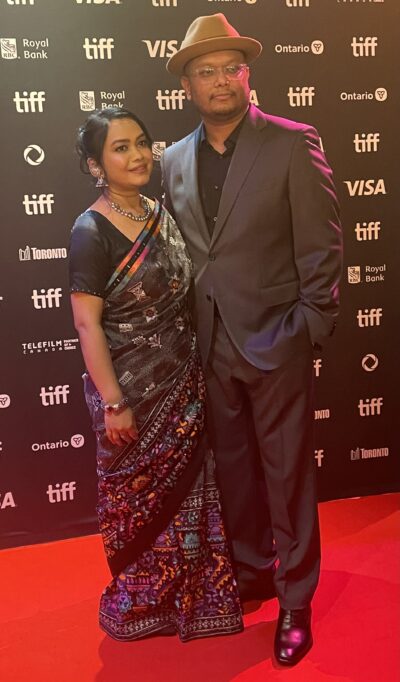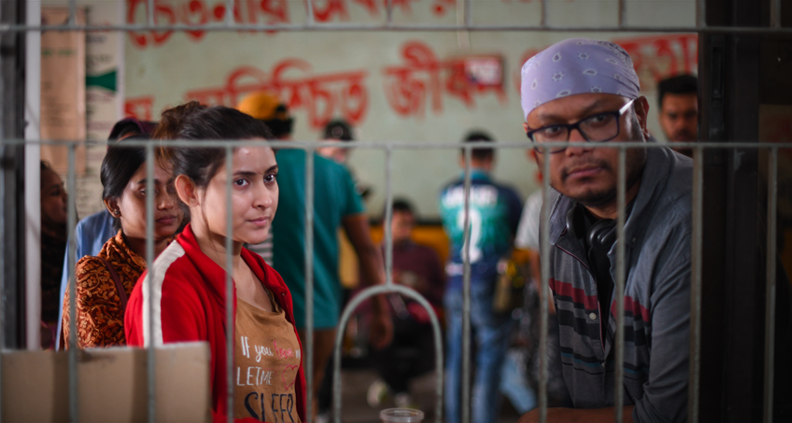Local Is the New Universal: Saba’s Journey Through Shared Struggles
After its world premiere and three sold-out screenings at the 2024 Toronto International Film Festival, Saba, a film by Maksud Hossain, has embarked on a prestigious global festival circuit, screening at the Busan International Film Festival and now in competition at the Red Sea International Film Festival. I recently reconnected with Maksud, my Global Media Makers Fellow, for an in-depth conversation about the creation of his film, reflecting on our shared experience in Los Angeles back in June 2023.
Film Independent’s Global Media Makers (GMM) is a six-week residency in LA, in partnership with the U.S. Department of State’s Bureau of Educational and Cultural Affairs, supporting independent filmmakers worldwide. This is where I, a Lebanese screenwriter and director, met Maksud Hossain from Bangladesh while we were both in the screenwriting track. It was here that I first read the screenplay for Saba and later watched an early draft of his debut film.

It’s a story about Saba (Mehazabien Chowdhury), a 24-year-old woman who is the sole caregiver to her ailing mother, Shirin (Rokeya Prachy). To afford her mother’s surgery, Saba must make sacrifices, from working at a shisha lounge to asking her uncle for financial support, all, while racing against time and grappling between her attraction to Ankur (Mostafa Monwar) and her need for survival.
“We’re just breathing to barely survive here.” This line, delivered by Ankur to Saba, struck me profoundly during my last viewing of the film. Although I had seen Saba in its various forms, from script to final cut, the emotional weight of that line of dialogue resonated deeply when conflict broke out in my home country, Lebanon. Set in the bustling streets of Dhaka, flavored with the taste of Kachchi, and deeply rooted in local culture, this film resonates universally. “The more specific you are, the more universal it becomes,” reads a quote Hossain kept on his desk while working on the film.
“It’s a story of stairs,” as Maksud describes it. Saba is bookended with stairs; the film begins with her descending stairs, laundry in hand, to assist her mother, and ends with her ascending them to confront Ankur. Saba is stuck in that liminal space between two floors, a transitional space. The staircase becomes a visual metaphor for Saba’s journey, embodying her inner conflict and character arc. “It’s also a story about letting go,” Maksud added.

Flashback to June in Los Angeles: We were promised California sunshine but instead were greeted by gray skies. However, the warmth of our GMM sessions filled the room. Maksud’s feedback session came after a long day, and despite the jet lag, all the feedback and notes were coming at him at a hundred miles per hour. After much back and forth, the mentor asked him, “What is your film about?” He was under the spotlight, and it was in that vulnerable moment he uttered those words: “It’s about letting go.” He had never, in all his preparation, thought of that. “Sometimes when a mentor pushes you, a gut instinct comes out, something you’ve never thought about surfaces from your subconscious,” he explained. This revelation became his guiding force through production and working with actors. “I wanted to give the audience an emotional experience of how difficult it is to let go of a loved one, even though it could be the best thing for them,” he reflected.

Maksud’s wife and co-writer, Trilora Khan, served as his primary inspiration. Saba is inspired by Khan’s relationship with her disabled mother, a personal story that became deeply intertwined with real life. During production, Maksud’s mother-in-law’s health deteriorated, and she passed away just five hours after filming wrapped—a haunting parallel between life and art. As Francis Ford Coppola once said, “I always became the character of the movie I was working on… Is this my life? Or is this basically all the movies I’m making?”
Hossain’s directing style and approach were shaped by a documentary-inspired method to tell this fictional story. Confident in directing actors after studying with Judith Weston for two years, he relied heavily on improvisation exercises to bring authenticity to his actors’ performances. Many improvised scenes found their way into the final cut, further grounding the film in reality.
Global Media Makers marked the final stop for Saba before production, following nearly two years in film development labs. For us, GMM was more than just a residency; it was a global community of filmmakers. Maksud met invaluable collaborators, including his film composer, Amman Abbasi, through GMM, which proved instrumental for Saba.

Looking ahead, Maksud has already begun working on his next film, The Dorm, inspired by his experience as a freshman in Indiana at Purdue University during 9/11, further exploring deeply personal stories through a unique lens. His new film will feature a Hollywood actor, marking another milestone in his career.
Filmmaking is a demanding journey. It took Maksud 18 years to make his first feature after his short documentary “Three Beauties”, which won a Student Academy Award in 2006. Yet, it’s all worth it because we’re surrounded by a community of artists who remind us that eventually, we’ll get there. We’ll finish that screenplay and shoot that film, even if some days it feels like a far-fetched dream. Global Media Makers is a bridge that enables filmmakers worldwide to grow, connect, and share their stories, reinforcing that our dreams, even when distant, are attainable.
Global Media Makers (GMM) is an in-depth, intensive artist development exchange program that produces residencies for international mid-career writers, directors, and producers in film and television. GMM fosters networks between U.S. industry leaders and mid-career film and TV professionals around the world. GMM is a cultural diplomacy initiative of the U.S. Department of State’s Bureau of Educational and Cultural Affairs (ECA) and implemented by Film Independent.